The In-cider On Our Apple Harvest
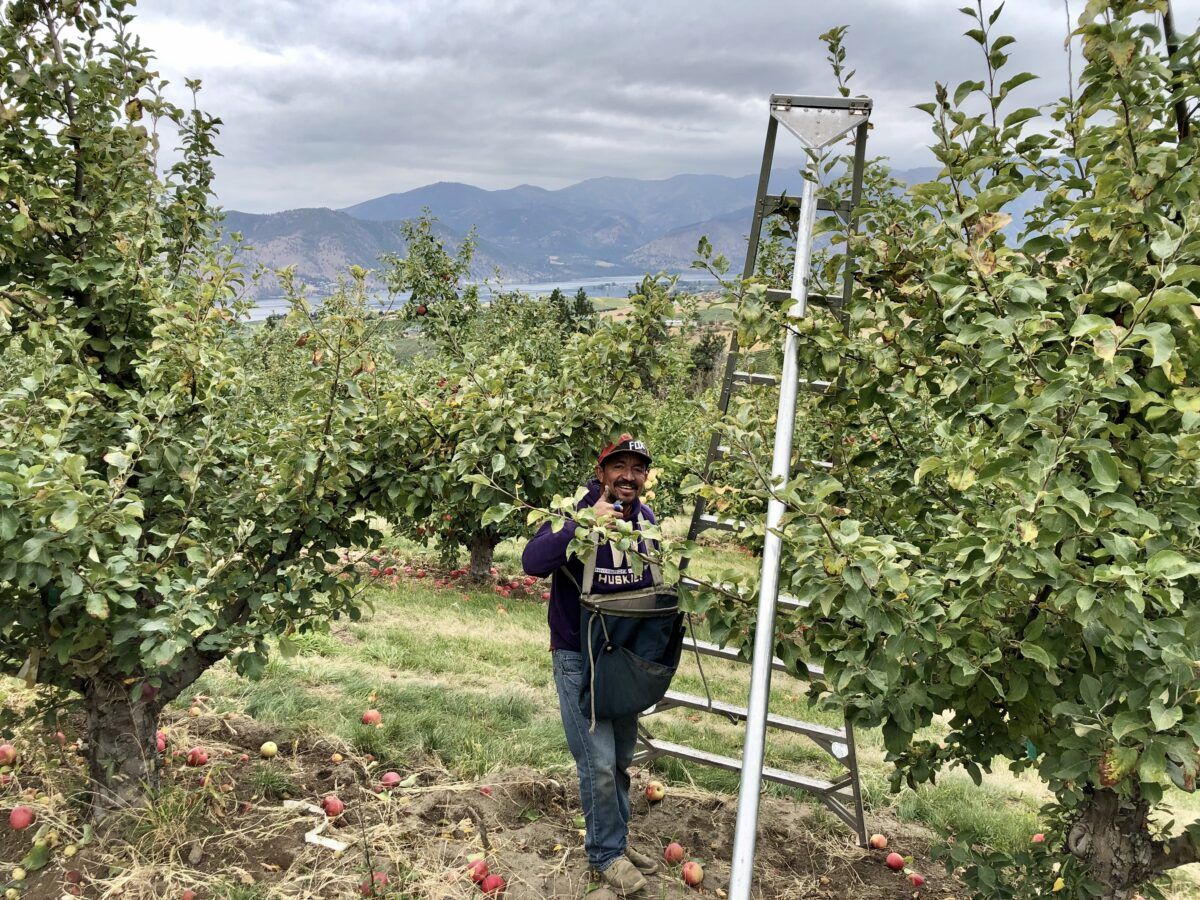
We had an unusual growing season this year that has ended with a beautiful crop of red-colored apples.
So as we move through our blocks harvesting apples, it’s a good time to mull over what we’ve learned these past few months. For sure, we don’t want to look back, quoting T.S. Eliot, “We had the experience but missed the meaning.” So what did we learn from our HOT, bake our brains out summer? You can read about it here because this is the in-cider on our apple harvest.

Hottest Summer On Record
Harvest started earlier than usual. We started in the middle of August instead of our typical end of August! Why? Maybe because of the hottest summer on record. Our crew started their day at sunrise and were done by 2 pm. All of us that braved the outdoor intensity knew to dress accordingly: wicking underwear and socks, long loose-fitting pants and sleeves, good boots, sunscreen, sunglasses, and a big ass hat. Here’s an in-cider tip, refrigerated watermelon chunks can instantly cool a person’s core inferno temperature; it both tastes and feels delicious as it cools your body from the inside out. This summer, the Heat Dome in Washington state sucked the pleasure from the great outdoors while we farmed and gardened.
Our farming took on an additional level of planning to ensure water availability for all workers and plants. We had irrigation on the orchards around the clock and prepared continuous sun protection applications for the trees and fruit. Thankfully, it appears our efforts succeeded for the most part! The white stuff on the apples is an organic mineral formed by the decomposition of granite rocks and washes off easily.
Lesson Learned
A hot weather forecast during the growing season requires a lot of extra planning and coordination to keep everything hydrated and protected! What we did this past summer will become a formal go-to plan for future summer seasons.
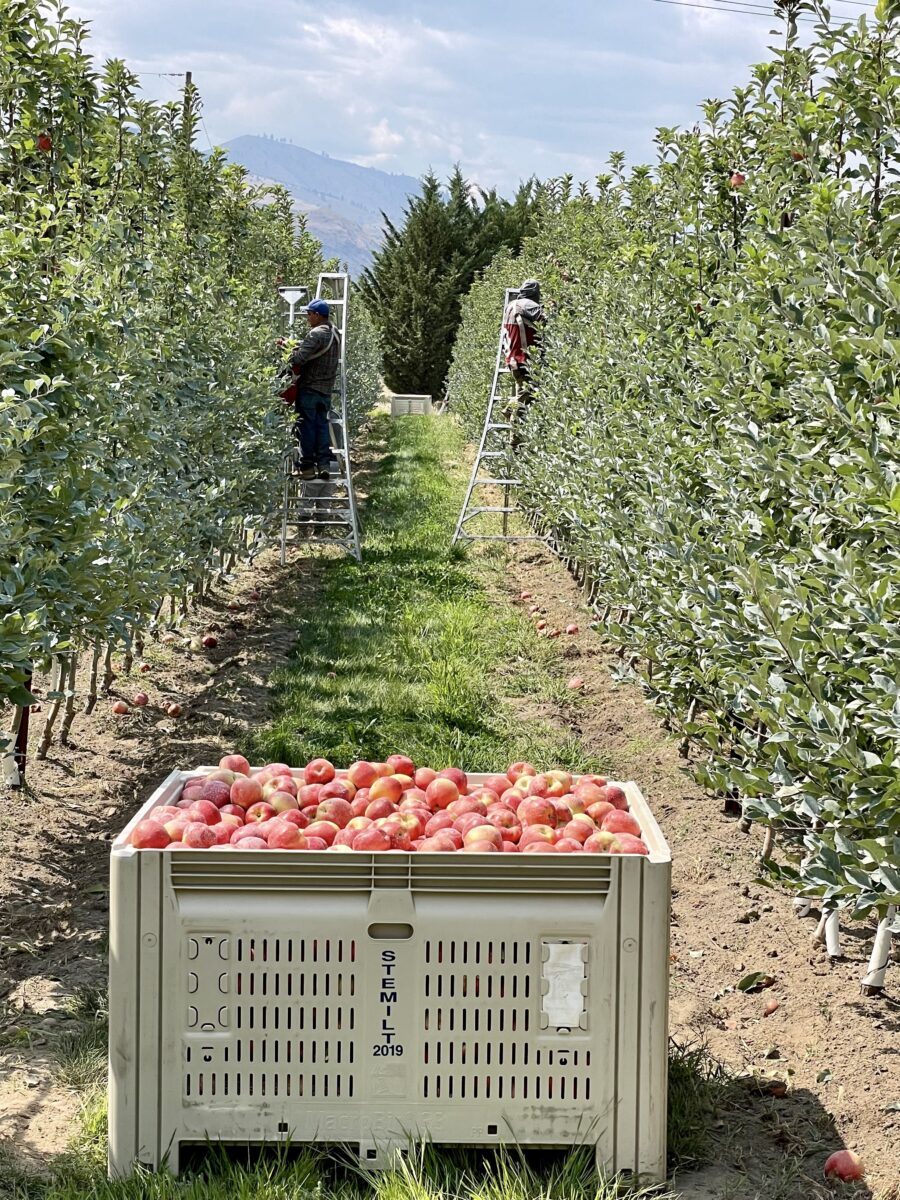
Largest Guest Worker Crew
We had our largest group of guest workers from Mexico to help us harvest our large crop. Having enough help allowed us to do the extra jobs the extreme heat created, such as continuous irrigation rotation, adding additional irrigation lines, providing plenty of crew water stations, etc.
Now that we’re into fall, the temperatures have cooled to comfortable, warm days. As a result, the crew has settled into a steady picking rhythm that involves a lot of physical strength, skill, and gentle finesse to treat the fruit with care and minimize bruising. We’re thankful for our guest workers, especially since there are fewer local workers available. With our large crew in place, we could start our harvest early and keep a daily pace so that the fruit comes off as soon as it’s ripe.
Lesson Learned
We’ll ask for the same number of guest workers from Mexico next year that we had this year. First, of course, we’ll hope for good weather, but in the words of Mark Twain, “Climate is what we expect, weather is what we get.”
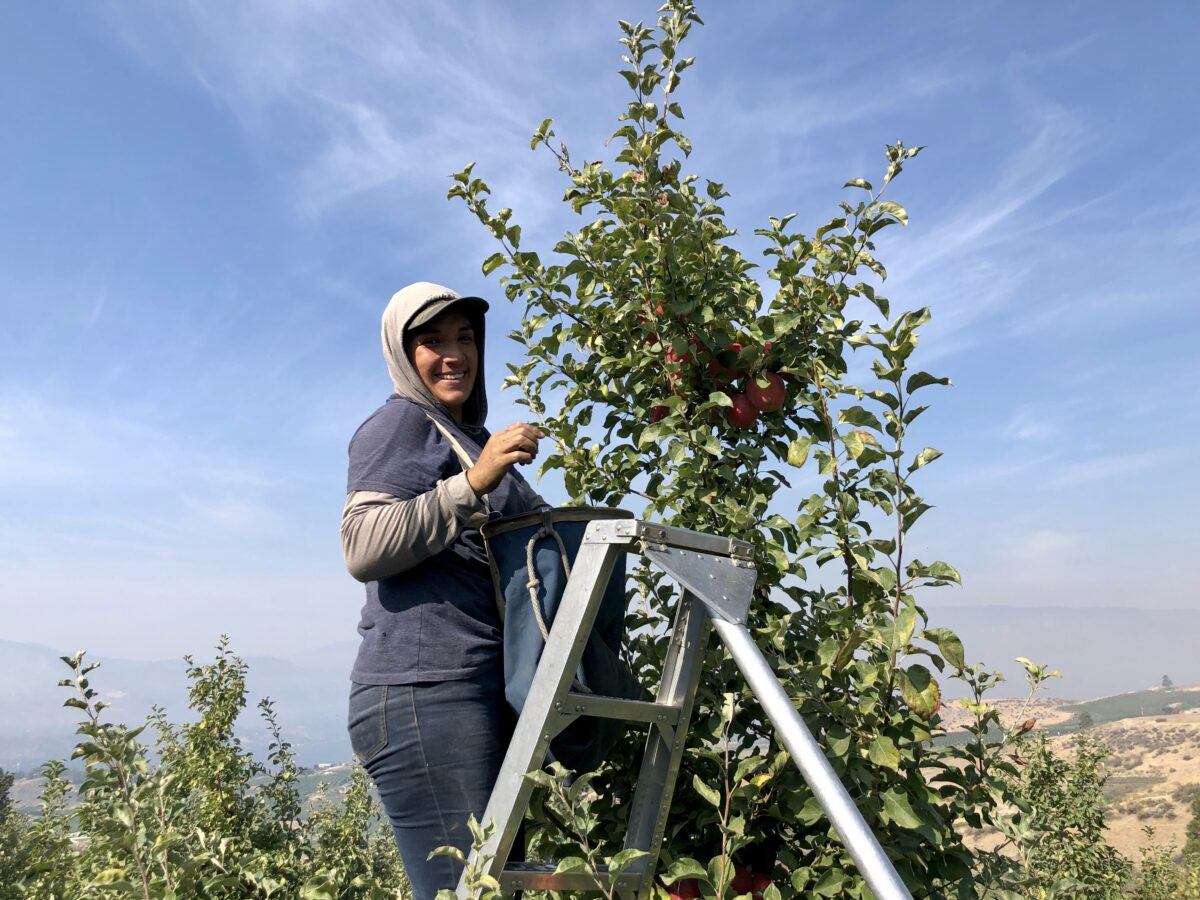
Picking our Largest Crop
Our crop size this year is tree-mendous. So what happened in our orchards last spring to set such a bountiful crop? Whatever we did, we call it Crop Load Management, and we’ll want to repeat it next year. Our horticulture specialist Phil and Farmer Bill will review the following practices of this past growing season: precision pruning, accurate bud & blossom cluster counts, chemical and hand thinning fruit to an ideal fruit quantity per tree.
Lesson Learned
We want to duplicate the crop load management program we used in late winter and early spring. After completing the harvest, we’ll prioritize a detailed review of our horticultural practices and then implement them next year.
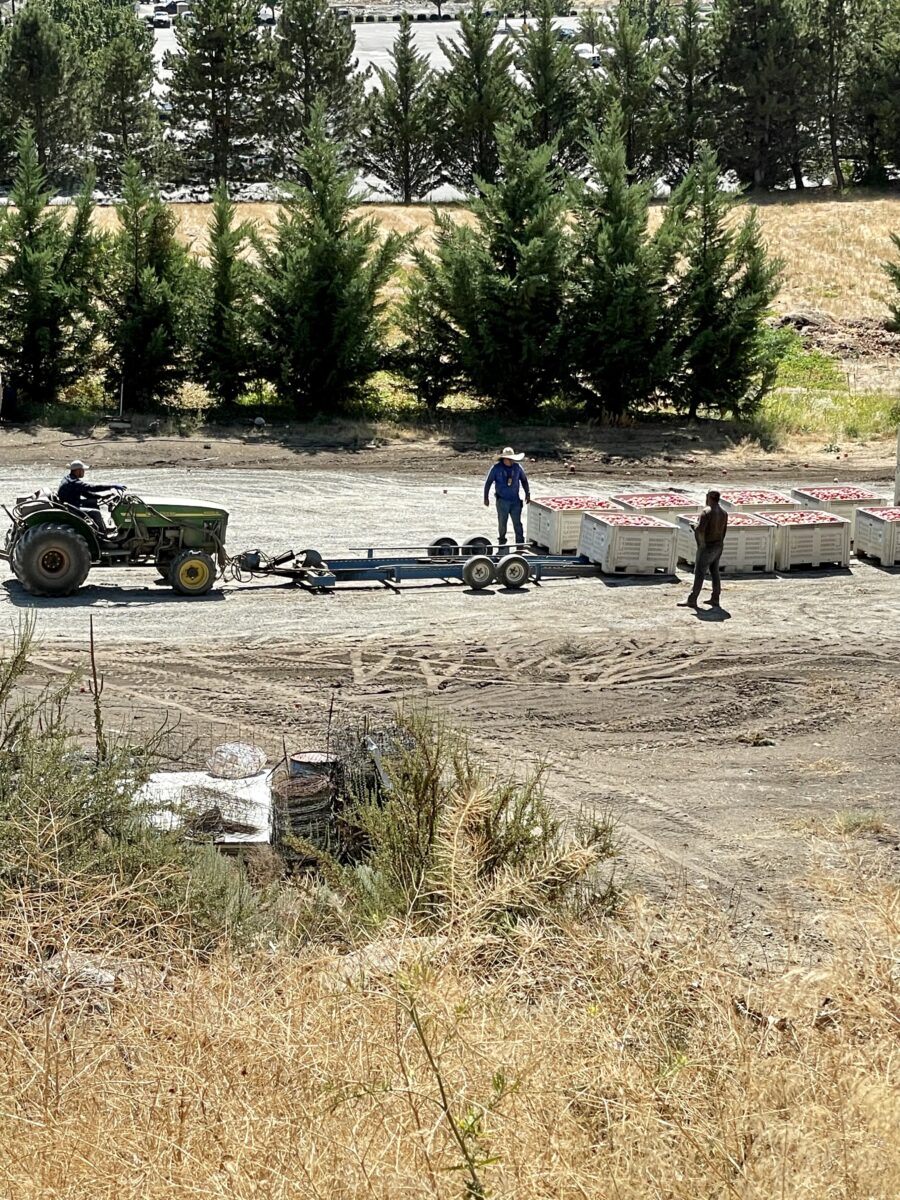
Talented Local Crew
The local crew has developed essential skills that make our harvests run smoothly. The local guys who work for us are critical to the daily operations in the orchards; they know all of our orchard blocks, equipment and supervise the field/orchard employees. As they move up the chain of command, they teach other people in our crew new skills. The opportunity to learn and grow is constant and exciting for everyone.
Lesson Learned
Even during a Heat Dome, we’ll check in with our local crew to keep them on course to get them where they want to be. Our local crew aspires to learn new skills as they move up the ladder in wages and responsibilities. Thus, we retain good people by offering this kind of job growth. We’ll keep offering learning experiences to all of our staff, so they grow as the business grows.
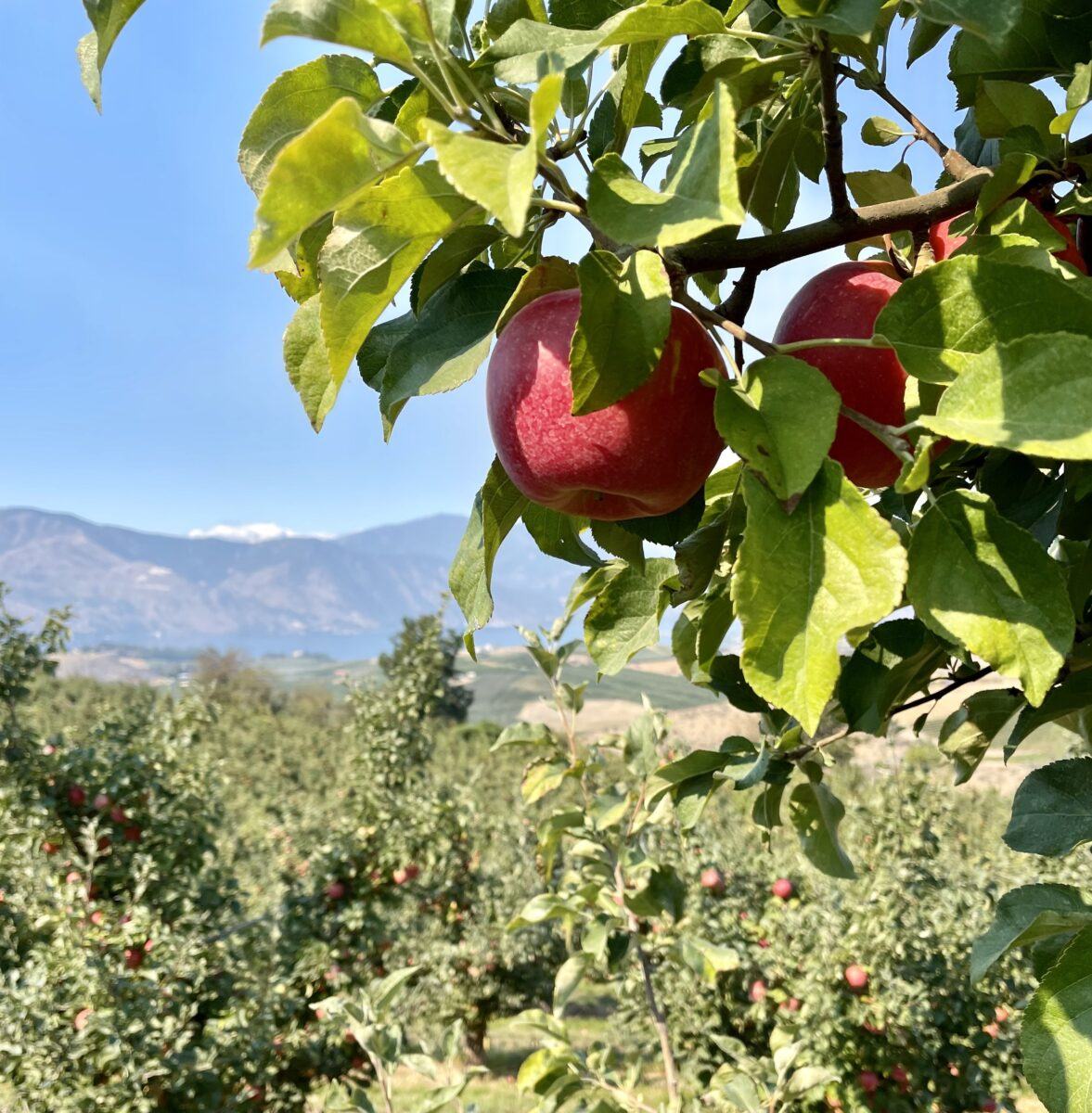
Diminishing Farmland In Chelan
New houses are continuing to replace farmland as Lake Chelan grows in popularity with the big metropolis of Seattle just three hours away. The congestion of Seattle city living during the Covid experience has motivated many people to relocate to this more agrarian, spacious place and work remotely. During a Heat Dome, Lake Chelan provides the ultimate retreat.
Lesson Learned
Once a house goes on it, it’s never going back to farmland. So, yes, there’s a tear in my beer.
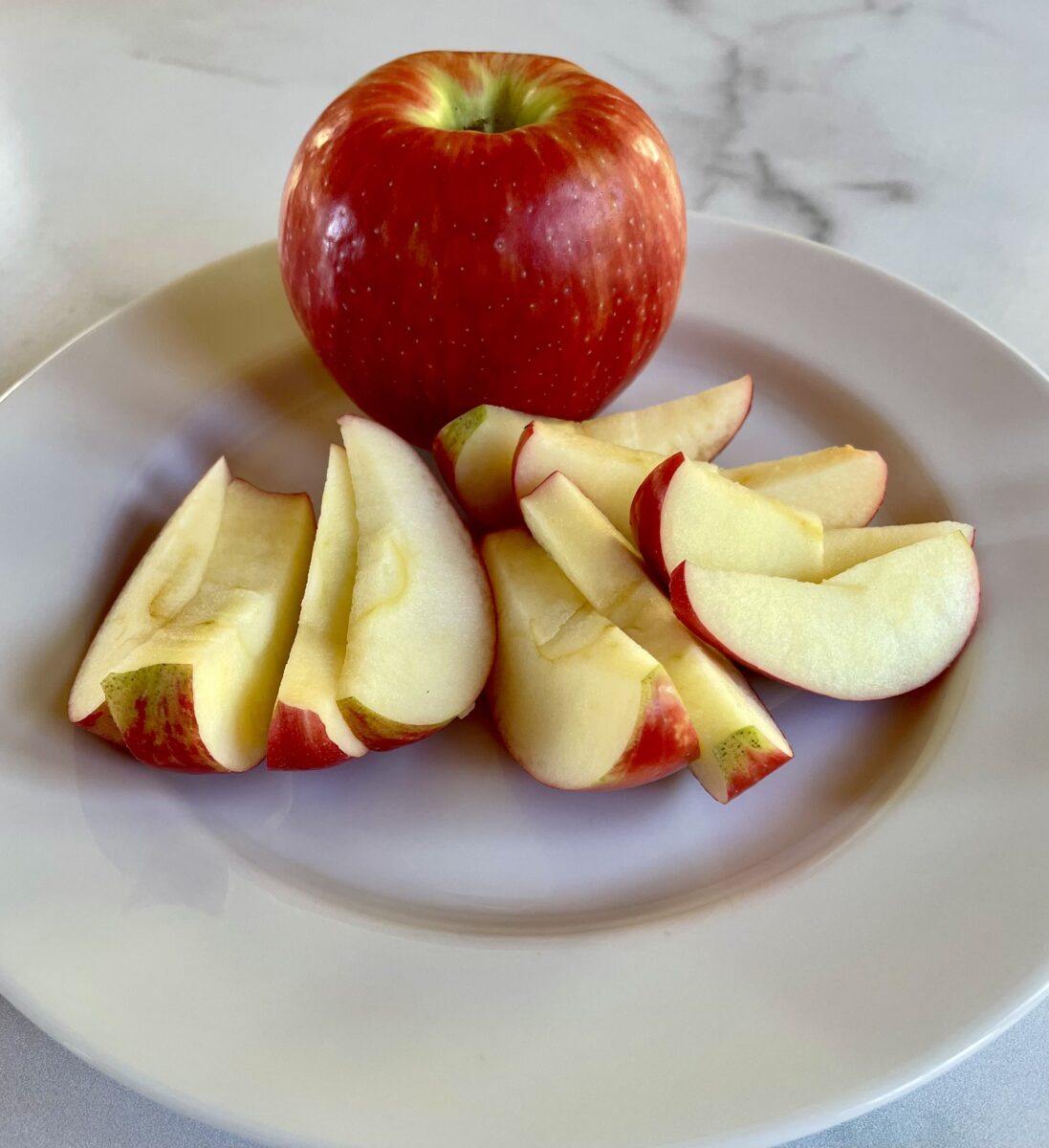
Excellent Flavor Quality Even With the Heat
We grow our Honeycrisp apples at an elevation of 2000′. The cold canyon environment matches this apple variety’s Minnesota heritage, and the apples prosper with excellent flavor. In addition, the canyon has less heat because of the deep V-shaped valley running north and south that makes for a late sunrise and early sunset. Other orchards in eastern Washington at lower elevations have unprotected sun exposure, and the apples suffer from the relentless heat of a hot summer like we had this year. Honeycrisp apples are heat intolerant and therefore site-specific.
Lesson Learned
Cold canyons at high elevations are the best places to grow Honeycrisp apples, especially during a Heat Dome. Our Honeycrisps have an excellent flavor profile with a juicy, crisp crunch and sweet-tart flavor that’s good to the core!
Hard-pressed to Complain
After getting the in-cider on our apple harvest, it’s apparent the unusual growing year offered various lessons for us to reflect on from now until next spring when we do this all over again. So far, we’re hard-pressed to complain now that the hellfire of summer is over, and we survived. We hope we had the experience and got the meaning! Like the African proverb states, “Smooth seas do not make skillful sailors.”





